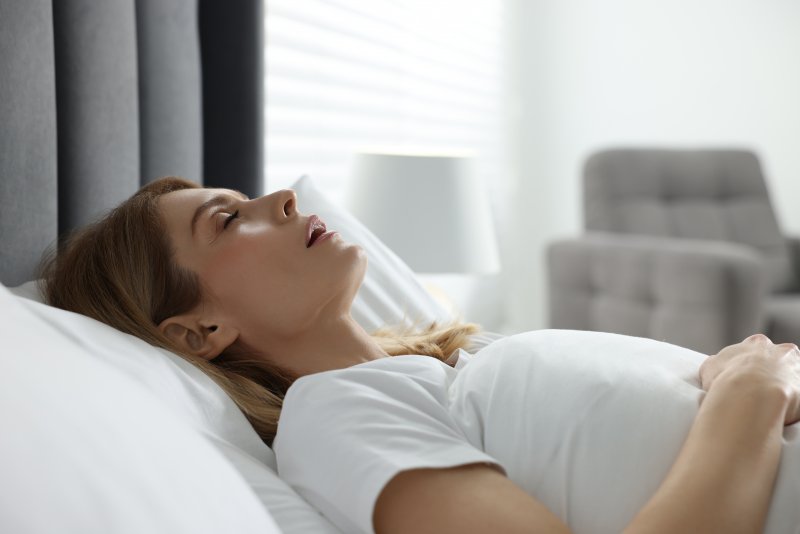
When thinking about sleep apnea, it’s not uncommon for most people to assume that men are more likely to struggle with it than women. The reality, however, is that the condition does not discriminate based on age or sex. Women are also primary targets for obstructed breathing, and recent research now shows that there is an increased risk of cancer among female sleep apnea sufferers. Read on to find out more about the connection and how treatment from a sleep dentist can lower a woman’s chances of developing this life-threatening disease.
Sleep Apnea & Cancer: What is the Link?
A study published in 2019 in the European Respiratory Journal states that researchers found a link between females with obstructive sleep apnea and an increased risk of developing cancer. Among 20,000 adults, an estimated two percent were discovered to be diagnosed with the dangerous disease.
Some of the common risk factors associated with cancer diagnosis included BMI (body mass index), age, and whether the individual smoked.
Although there is still much research to be done to determine if there is a direct link, there are many suggested theories that warrant an urgency for women to seek treatment for sleep apnea. Some of the speculations include:
- Frequent, interrupted sleep can cause cells throughout the body to become stressed, resulting in increased inflammation that can lead to cancer.
- Obesity and age are both common risk factors for sleep apnea and cancer, so if a woman struggles with weight gain and is older, the chances of developing cancer are greater.
How Can Sleep Apnea Treatment Lower the Potential Risk of Cancer?
Women who believe they might have sleep apnea because of bouts of interrupted sleep and chronic fatigue can find help when meeting with a trusted and experienced sleep dentist. Offering appropriate testing and diagnosis, these individuals can develop a plan to treat sleep apnea so that daily symptoms decrease as well as the risk of cancer.
Many patients turn to CPAP (continuous positive airway treatment) therapy because of its reputation for being able to address the most severe cases of obstructive sleep apnea (OSA). However, another alternative is oral appliance therapy (OAT).
These custom-made devices are designed based on impressions taken of the patient’s mouth, so they fit comfortably and work effectively. The appliance moves the jaw forward slightly so the airway remains open, and no blockage can occur.
A sleep dentist might also recommend other forms of treatment to address sleep apnea, such as avoiding naps, turning off the cell phone before bed, reducing caffeine consumption, and kicking one’s smoking habit.
While the link between cancer and sleep apnea still requires more research and analysis, it’s best for women to take necessary precautions to improve their overall health and well-being. One way to do this is by getting the necessary treatment for sleep apnea so that better rest is achieved, and the potential risk for cancer becomes less and less.
About the Practice
At Star Sleep & Wellness in Denton, our sleep dentists and specialists provide patients with safe and effective solutions for better sleep. We closely follow much of the research in the field to ensure our patients receive the most up-to-date and appropriate methods of care. If you are a female struggling with sleep apnea, contact us to find out how we can help lower your stress, improve your symptoms, and put you one step closer to living a healthier life.
